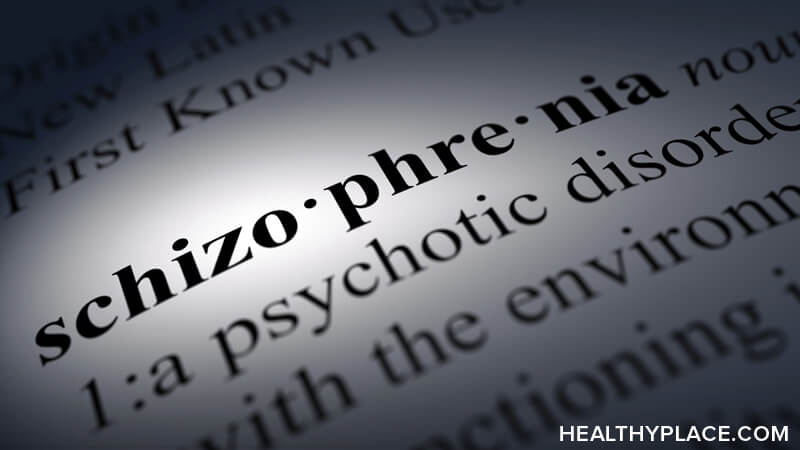What Is Schizophrenia? Definition, DSM-5

“Schizophrenia is a disease that affects perception and undermines the part of our brain that knows what is real and what is not.” —Dr. R. Douglas Fields
Schizophrenia is a mental illness that a great many people have heard of but not many—including medical professionals—fully understand. And rightly so, for schizophrenia is complex. Perhaps the best way to understand what schizophrenia means is to break it up and examine the pieces.
Psychiatrists, neurologists, and other medical professionals specializing in the brain have, through research and observation, concluded that schizophrenia is a
- Disease of the brain
- Medical illness
- Mental illness, psychotic disorder
As a brain disease, medical illness, and psychotic disorder, schizophrenia significantly disturbs thoughts, emotions, speech, and behavior. It also affects perception and how someone takes in, interprets, and interacts with the world around him/her.
The American Psychological Association, in its Diagnostic and Statistical Manual of Mental Disorders, Fifth Edition (DSM-5) seeks to explain schizophrenia in more detail.
Schizophrenia in the DSM-5
The DSM-5 definition of schizophrenia doesn’t so much as define the disorder in succinct terms as it does describe its features. Because of its complexity, there isn’t a single cut-and-dried definition of schizophrenia.
Schizophrenia is an intricate illness of the brain that is very individualized. It is different for every person that lives with it. Further complicating things is that schizophrenia has five subtypes (paranoid, disorganized, catatonic, undifferentiated, and residual), and each of these is experienced uniquely by individuals.
That said, this mental and medical illness does have defining symptoms, features, and diagnostic. There are positive and negative symptoms of schizophrenia, as well as cognitive symptoms. Schizophrenia has neurological signs, too, as well as certain behaviors that point to the illness.
The DSM-5 refers to schizophrenia as a constellation of symptoms rather than as a single, definitive disorder. Further, the markers of schizophrenia exist as a range, and they vary in intensity from person to person, and even in the same person over time (Are Schizophrenia Symptoms in Males and Females Different?).
Schizophrenia is described in the DSM-5 as having these traits:
- Positive symptoms such as hallucinations and delusions (Schizophrenia vs. Psychosis: What’s the Difference?)
- Negative symptoms like a reduction in expression and emotion
- Cognitive symptoms like diminished problem-solving, thinking, and reasoning
- Disorganized speech
- Disorganized or catatonic behavior
- A decrease in functioning in important life areas
- Possible neurological problems such as movement/motor skills, sensory integration, and more
- Behaviors such as mumbling aloud in public, doing things that make sense in the person’s inner world but not in the real world
The DSM-5 specifies that these symptoms of schizophrenia must be present for more than six months, occur in groups (the presence of hallucinations alone, for example, does not constitute schizophrenia), and not happen as part of a different disorder or substance use.
These characteristics are a description of what schizophrenia is. What does schizophrenia mean?
The Meaning of Schizophrenia: Is It a “Split Mind?”
The word schizophrenia is derived from the Greek word meaning “severed mind” or “split mind.” The word refers to
- The fragmentation of mental functioning
- A separation between thinking and feeling
- A split between what is real and what is not
Unfortunately, this connection to “severed mind” or “split mind” has caused confusion and misperceptions. People have taken this to mean “multiple personalities” or “split personalities.” These experiences, more accurately described as alternate identities, are a big part of dissociative identity disorder (DID). DID is drastically different from schizophrenia, and the confusion isn’t helpful to either one.
Another sad consequence of the word “schizophrenia” is that it has traditionally been interpreted as frightening and, often, violent. The DSM-5 works to change the stigma that schizophrenia is a violent illness and clearly states that most people with schizophrenia aren’t aggressive and are instead more frequently victims of violence.
What does schizophrenia mean? While it’s confusing, we can be certain that schizophrenia does not mean violence.
Schizophrenia is a Serious Mental Illness
One definition of schizophrenia is a serious mental illness (SMI) that messes with perception, thoughts, feelings, cognitive processing, and behavior. Some professionals prefer to use the term SMI rather than the official name schizophrenia.
The term SMI is considered by some to be clearer and more logical.
- “Schizophrenia” is actually a group of symptoms and features rather than a single illness
- The illness is unique to each individual—no two people experience it the same
- It doesn’t carry the emotional, often negative, connotation that “schizophrenia” does
One thing that is consistent for everyone living with it: schizophrenia interferes in life. It decreases someone’s functioning in one or more life areas such as
- Work
- School
- Relationships
- Social activities
- Self-care
This illness is indeed very serious and disruptive; therefore, to find ways to lessen its impact on people, researchers in the field continue to make new discoveries. As we increase our understanding of what schizophrenia is, we increase the possibility of effective new schizophrenia medications and treatments.
APA Reference
Peterson, T.
(2021, December 28). What Is Schizophrenia? Definition, DSM-5 , HealthyPlace. Retrieved
on 2026, January 15 from https://www.healthyplace.com/thought-disorders/schizophrenia-information/what-is-schizophrenia-definition-dsm-5



